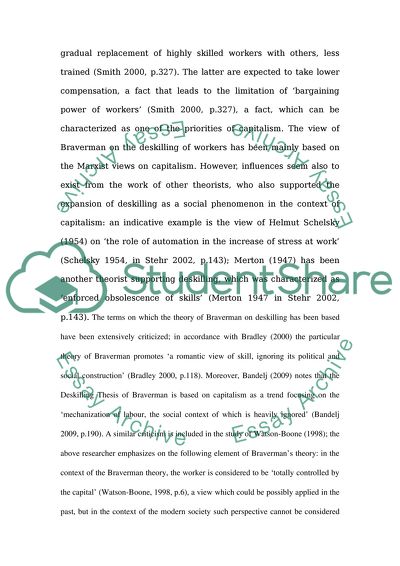Cite this document
(“Has the arrival of the knowledge economy destroyed Braverman's Essay”, n.d.)
Retrieved from https://studentshare.org/environmental-studies/1420037-has-the-arrival-of-the-knowledge-economy-destroyed
Retrieved from https://studentshare.org/environmental-studies/1420037-has-the-arrival-of-the-knowledge-economy-destroyed
(Has the Arrival of the Knowledge Economy Destroyed Braverman'S Essay)
https://studentshare.org/environmental-studies/1420037-has-the-arrival-of-the-knowledge-economy-destroyed.
https://studentshare.org/environmental-studies/1420037-has-the-arrival-of-the-knowledge-economy-destroyed.
“Has the Arrival of the Knowledge Economy Destroyed Braverman'S Essay”, n.d. https://studentshare.org/environmental-studies/1420037-has-the-arrival-of-the-knowledge-economy-destroyed.


